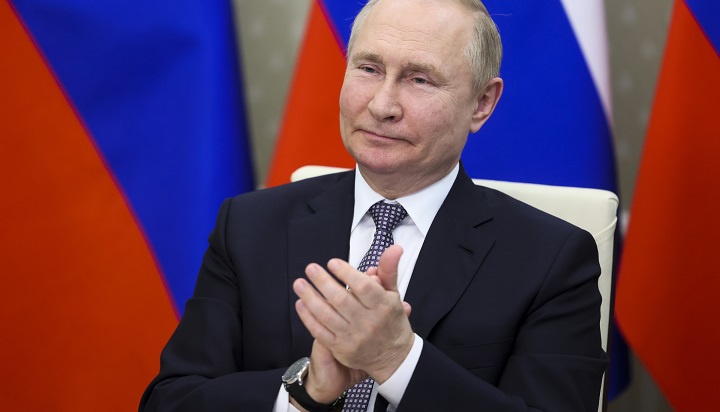
Is the CEI (Conference of Italian Bishops) ignoring the elephant in the room of the present political crisis, namely Russian President Vladimir Putin? In its concerned note on the crisis produced by the M5s (5Star Movement) on the Mario Draghi government, the bishops’ conference, through its president, Card. Matteo Zuppi, points to the severe overlapping of crises (pandemic, war, economy, inflation, precariat, etc.).
And he invokes “the maximum of convergence and stability to finish the launching of decisive interventions about which we have been discussing for months and which will condition the coming years. This is why we hope there will be a burst of responsibility in the name of the country’s general interest that must prevail over the albeit legitimate partisan positions to identify what is necessary and possible for the good of all.”
The reference is not only to the political forces as a whole, but especially to the President of the Republic, Sergio Mattarella, and the resigning Prime Minister, Mario Draghi. With one eye on the Holy See and one on Europe.
It’s a narrative not without virtue, but one that glosses over the decisive role of the war in Ukraine and Putin’s willingness to destabilize Europe to entrench the conflict.
The unity of the European Union in this regard is already quite precarious, and in the context of the large countries that structure it, Italy is the one that can most easily overthrow the alliance system. As Francesco Sisci wrote on these pages, “It is easier to turn it [Italy] one way or the other. It lives on improvisation. It works now thanks to Premier Mario Draghi. Without him everything could go the other way. While pushing Germany one way or the other is difficult, getting Italy to change its mind on Ukraine could be a piece of cake.”
The Giuseppe Conte (leader of M5s), Matteo Salvini (Leader of Lega), and Silvio Berlusconi (leader of Forza Italia) “triumvirate” is ready for a government with a pro-Russian profile. That could condition Germany and even France.
Poland, Romania, Finland and the Baltics would remain to support NATO. Meanwhile, Italy would return to pre-Draghi ambiguities: the pro-Chinese M5s and the pro-Russian Lega in the name of a pacifism without quality. And this is not because of geopolitical strategy, but because of petty interests and driven political shortsightedness. After all, the change is already registered with interest by Russia, which calls on Italy for a government “not subservient to the US.”
Therefore, the absence of a reference to the Atlantic Alliance and to the pro-Putin inclination of a good part of the Italian parties weakens the position of the Italian Bishops’ Conference and exposes it to being manipulated by Italian political dwarfism.
The danger is not of Cossack horses watering at the fountains of St. Peter’s as after World War II, but of being part of a lazy breeze in which the country does not understand what is really at stake: its own and others’ freedom.





